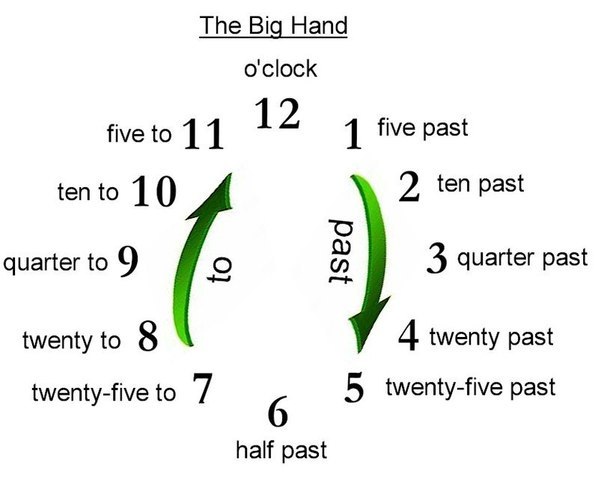
• Better Late Than Never (досл. Лучше поздно, чем никогда)
This idiom is simple but effective. It implies (подразумевать) that a belated (запоздалый) achievement (успех) is better than not reaching a goal (цель) at all.
One might say, “The achievement is long overdue (запоздалый), but it’s better late than never.”
• On the Spur of the Moment (досл. На вершине момента — Под влиянием минуты)
This popular saying denotes (обозначать) a spontaneous (спонтанный, неподготовленный) or sudden (внезапный) undertaking (дело).
For example, “Linda and Louis drove to the beach on the spur of the moment.”
• Once in a Blue Moon (досл. Однажды при синей луне — Когда рак на горе свистнет)
A blue moon is a colloquial (разговорный) term applied (используемый) to the second full moon in one month. This idiom means something is rare (редкий) or infrequent (нечастый).
For example, “Homebodies (домоседы) Mary and James only go out once in a blue moon.”
• Living on Borrowed Time (досл. Живущий в заимствованном времени — Жить взаймы)
Following an illness or near-death experience (опыт, испытание), many people believe they have cheated (обманывать) death.
Here’s an example: “After Jim was struck (ударять) by lightning (молния), he felt like he was living on borrowed time.”
• In the Interim (досл. В промежутке — Тем временем)
This frequently (часто) used phrase is interchangeable (взаимозаменяемый) with “in the meantime (тем временем),” which is another time-related saying. It denotes (обозначать) a period of time between something that ended and something that happened afterwards (позже).
• In Broad Daylight (досл. В широком дневном свете — Средь бела дня)
When something occurs (происходить) in broad daylight, it means the event is clearly visible (видимый).
Here’s an example: “Two coyotes brazenly (нагло) walked across the lawn (лужйка) in broad daylight.”
• Against the Clock (досл. Против часовой стрелки — Торопиться что-то сделать своевременно)
This common (простой) idiom means time is working against a project or plan instigated (провоцируемый) by a group or an individual (один человек, индивидуум).
For example, “In movies, writers love to create countdowns where the main characters are working against the clock.”
• All in Good Time (досл. Все в хорошее время — Все в свое время)
Patience (терпение) is an uncommon virtue (достоинство, добродетель). When individuals are inpatient, friends often assure (уверять) them that things will happen eventually (в конце концов).
• Big Time (досл. Большое время — Большой успех, Серьезный, Крупный)
This versatile (универсальный), informal idiom is used to denote (обозначать) something of extreme severity (серьезность).
For example, “When he landed (достигать) the position as vice president, he knew he had reached the big time.”
• The Time is Ripe (досл. Время созрело — Время пришло)
When the time is ripe, it’s advantageous (выгода) to undertake (предпринимать) plans that have been waiting for awhile (некоторое время).
Here’s an example: “Raphael was planning a trip overseas (за границу), and the time was finally ripe.”
• Have the Time of Your Life (досл. Иметь время твоей жизни — Лучшее время твоей жизни)
The 1980s movie Dirty Dancing turned this idiom into a song that became one of the film’s most iconic (культовый) tracks.
For example, “Genevieve had the time of her life touring (совершая поездку) Italy.”
• Time is Money (досл. Время — деньги)
If time is going to waste (тратить), money isn’t being made. This popular idiom attributed (приписывать) to Ben Franklin is frequently (часто)
used in relation to business or employment (работа).
Here’s an example: “It’s wise to use every minute productively because time is money.”
▶ Материал для Вас подготовила Мария Вострикова